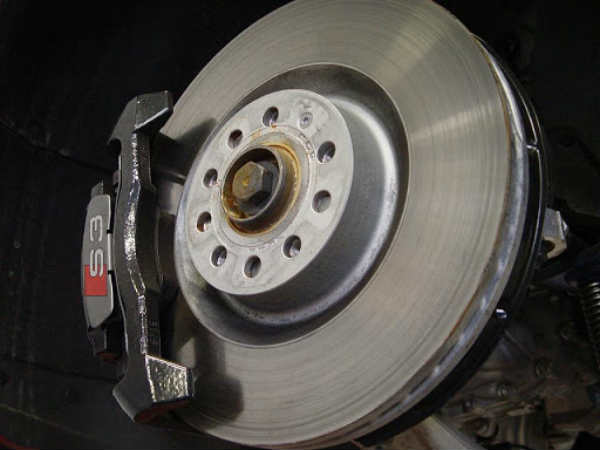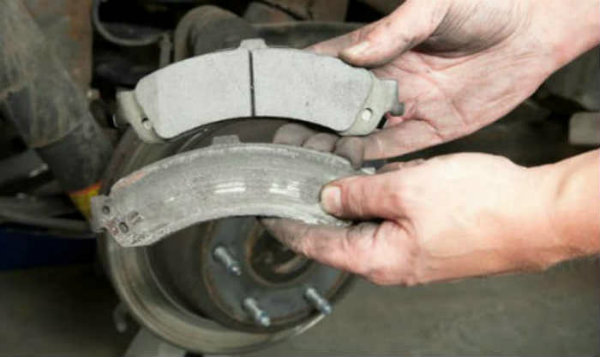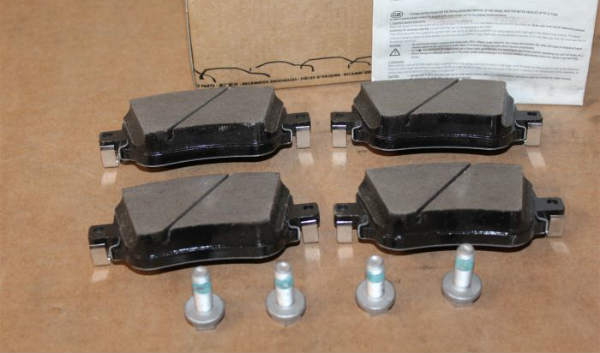Audi Maintenance: When & How to Replace the Brake Pads
Audi car brake systems have come a long way – from mechanically-operated drum systems and brake shoes to computer-controlled ABS systems. However, despite their advanced design today, almost all parts of the braking system wear out and will require replacement after a while.
Of all those parts, your Audi’s brake pads take the most abuse and wear out fastest. That being said, you should know what to look for when you’re buying replacement front or Audi rear brake pads to make sure your car’s braking performance stays just as good as it was out the stock, or better. Sticking to OEM brake parts, in general, is a good idea, as it ensures compatibility. However, you shouldn’t forget to check aftermarket options as well, as they may be superior in performance and more affordable.

Keep in mind that you should consider investing in new front and Audi rear brake pads before the existing ones wear out totally so that your car can maintain the necessary stopping power to keep you and others you share the road with safe. Additionally, this will prevent wear to other parts of your braking system, such as your brake rotors and callipers. If you think your brake pads are wearing down, and you’re wondering whether it’s time to replace them, here’s how to make sure.
How Often Do Brake Pads Need to Be Replaced?
Most car manufacturers recommend replacing the brake pads every 50.000 to 65.000 kilometres, which is about the same time you replace the tyres. This is mainly due to the fact that brakes and tyres work together to help stop your Audi, so it just makes sense to replace them at the same time.
However, sometimes, you might need to replace the brake pads earlier in order to prevent damage to the brake rotors – the part that the brake pads rub against to stop your tyres from spinning. That being said, you’ll also have to replace your brake rotors occasionally, every two or three tyre replacements, or every 150.000 to 200.000 kilometres. Some of the symptoms that will alert you of your brake pads needing replacement sooner rather than later include:

If you press the braking pedal and hear a squealing sound, it’s probably the result of worn down brake pads that are too thin. Most modern brake pads feature a wear bar indicator that comes in contact with the brake rotors once the pads wear down by 80%. If the pads aren’t replaced soon thereafter, the indicator can dig into the rotor, potentially damaging it and warranting replacement.
If you press the braking pedal and notice a pulse, it also means that the brake pads are probably worn down. However, this may also mean there are problems with the ABS system or brake rotors, so consider taking your car for inspection at a mechanic.
If you don’t feel like your brakes are as responsive as they used to be, then you probably need to replace the brake pads or some other part of the braking system.
What to Look for in Brake Pads?
When browsing for new Audi brake pads, you need to consider several important points in order to make sure you find the most suitable ones. The type of brake pads you need will depend on the conditions you drive in and your driving style. For instance, brake pads designed for everyday use like commuting won’t have to deal with high temperatures, whereas if you’re driving a high-performance model, they’ll need to handle a decent amount of heat.

- Decent brake pads should perform well in all types of climates, no matter whether muddy, wet, warm or cold.
- Your brake pads should provide sufficient friction, no matter whether the temperatures are in the extreme cold or hot.
- The brake pads should be able to withstand high temperatures that are the result of the friction between them and the rotors.
- The pads shouldn’t produce too much brake dust that clings to your wheels.
- The brake pads shouldn’t be too loud and shouldn’t produce too much vibration.
- The brake pads should be designed to last for a fair amount of time without damaging the rotors.
Furthermore, always look to get brake pads from trusted brands. These are the most important car parts for your safety, and they can literally save your life. Don’t compromise on getting replacement brake pads made by a cheap manufacturer. Additionally, trusted brands provide warranty on their products. While yes, the brake pads will wear down eventually, they’re usually backed by a mileage warranty. Lastly, look for two certifications – Differential Effectiveness Analysis and Brake Effectiveness Evaluation Procedures.
At the end of the day, no matter what type of brake pads you choose for your Audi, you need to make sure they’re properly installed. In order to do that, refer to your trusted mechanic and have them inspect your entire braking system while you’re at it to ensure everything is in proper working condition.






